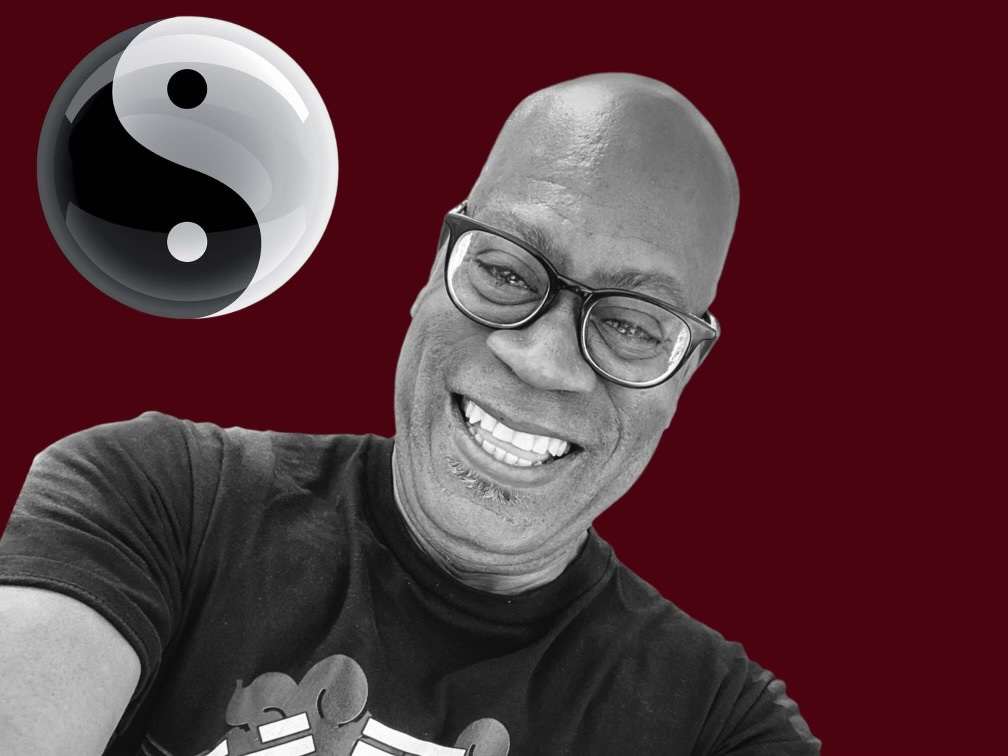She Refused To Participate
Taoism, Confucianism, and the Attack Against Our First Amendment Rights
PhotoRoom Image
“Yesterday, I was told (not by my university) that I had to stop my periodic contract work for an organization that does leadership training for federal employees. To comply with Trump administration restrictions, I could only keep doing the work if I gave daylong presentations that had no mention at all of African Americans or women or racism or sexism or anything that had to do with DEIA or gender. They apologetically asked me if I might have anything like that — on just white straight men, I suppose — to present instead. I said no.”
Alison M. Parker, Richards Professor of American History at University of Delaware LinkedIn Post — February 28th
When Dr. Alison Parker refused to continue working for an organization subjected to restrictions that have sought to erase discussions of African Americans, women, racism, and sexism from her leadership training for federal employees, she upheld a fundamental truth….
…..free speech is not merely about the words we utter but about the integrity of the speaker.
Her stand against ideological censorship brings to mind a question as ancient as civilization itself—how do we navigate oppression without being consumed by it?
From a Taoist lens, Alison’s predicament is an archetype of resistance against forced compliance, and it offers an opportunity to explore the intersection of personal virtue, non-action (wu wei), and the preservation of free expression.
Taoism, particularly through the teachings of Lao Tzu and Zhuangzi, suggests that true power lies not in forceful opposition but in the effortless flow of wisdom and resilience.
However, there comes a time when non-compliance is not simply a choice but a necessity—when stepping aside is no longer an option, and one must stand firm like the unyielding mountain against the raging storm.
The Wu Wei of the First Amendment
The First Amendment guarantees the right to free speech, a principle that thrives on the notion that the government should not dictate which ideas can be spoken and which must be suppressed. Lao Tzu, though living centuries before this concept was formalized, had deep insights into governance, often warning against rulers who sought to control too much.
In Tao Te Ching, he cautions, “The more laws and restrictions there are, the poorer the people become.” This reflects a universal truth—when speech is restricted, thought itself is diminished.
Yet, Taoism does not advocate for direct rebellion in the way Western ideologies of resistance often do. Instead, it proposes wu wei—a concept of non-action or effortless action.
In this case, Alison’s decision not to comply with the absurd request to erase discussions of race and gender is an example of wu wei in practice. She did not engage in an all-out battle. Instead, she simply refused to betray her principles. She let the truth speak through her silence.
This kind of non-action is not passive. Rather, it is a deliberate, purposeful form of resistance. The Taoist approach to injustice is not to fight fire with fire but to make the flames irrelevant. By refusing to cater to ideological suppression, Alison highlights the absurdity of the request itself, exposing its fundamental weakness.
Confucianism and the Ethics of Free Speech
While Taoism embraces spontaneity and natural harmony, Confucianism emphasizes ethical responsibility and speaking truth to power. Confucius would argue that a scholar’s duty is to cultivate virtue (ren) and uphold righteousness (yi) even in the face of coercion.
In this light, Alison’s choice is not just a professional one but a moral one—choosing to uphold ethical integrity rather than succumb to enforced silence.
Confucius taught that governance should be based on moral example rather than coercion. The First Amendment, in its essence, reflects this idea—it exists not merely to permit speech but to foster an environment where truth can flourish.
The danger of ideological suppression, whether by government decree or bureaucratic manipulation, is that it creates a culture of intellectual stagnation. Without open discourse, wisdom cannot circulate. And without wisdom, society crumbles into dogma and control.
The Paradox of Non-Compliance: What Would Lao Tzu Advise?
Lao Tzu might view this situation with a paradoxical perspective:
☄️Water and Stone: Resistance, when too rigid, can be broken. But water, which yields, ultimately erodes the stone. In this sense, a long-term strategy of strategic non-compliance—finding ways to continue meaningful discussions without direct confrontation—may prove more effective than immediate conflict.
☄️ The Empty Vessel: Sometimes, true power lies in appearing to comply while subtly subverting the system. Can discussions of leadership be framed in ways that inherently challenge oppression, even without explicitly using banned terms? Can wisdom be embedded in a manner that those who impose restrictions do not anticipate? This is the art of formlessness—a core Taoist strategy.
☄️The Uncarved Block: There is a point where an individual must recognize the limits of a system. If the institutions enforcing these restrictions have lost their way, does one continue engaging with them, or is it wiser to create a new path altogether? This is the principle of returning to one’s essence—recognizing when an organization no longer serves its fundamental purpose.
What is the Path Forward?
The challenge Alison and others like her face is not just about an unjust policy—it is about an encroaching mindset that seeks to regulate truth. The First Amendment exists to prevent exactly this kind of ideological gatekeeping, yet authoritarian tendencies persist, shifting tactics rather than vanishing outright.
A Taoist approach to challenging this would involve:
👉🏿 Strategic Non-Compliance: Engaging in discussions that honor the truth while sidestepping artificial barriers. If “African Americans” and “women” cannot be mentioned explicitly, then let the lessons emerge through allegory, case studies, or indirect teaching. The Taoist way often involves revealing truth without forcing it upon others.
👉🏿 Creating Parallel Structures: If institutions impose unacceptable restrictions, it may be time to build alternative spaces where these discussions can take place freely. The Tao does not force itself into systems that no longer flow. Instead, it finds new pathways to expression.
👉🏿 Calling Out the Absurdity Without Engaging in Futility: The greatest enemy of authoritarianism is its own ridiculousness. When systems become so restrictive that they demand erasure of history, the most powerful resistance is often to simply highlight the absurdity, forcing them to collapse under their own weight.
Final Reflections: The Tao of Free Speech
In the Taoist view, oppression always consumes itself in time. A river, when damned, eventually finds a new course. The Tao does not fight—it flows, reshaping the landscape without brute force.
The First Amendment, like the Tao, is not about absolute freedom without responsibility—it is about balance. It is about creating a society where speech, ideas, and truth can move as freely as the wind. Alison’s stand is not just about a single job opportunity—it is about the greater philosophical battle between control and liberation, between censorship and truth.
And if Lao Tzu were watching? I believe he might simply smile and say, “The flame that burns too hot always extinguishes itself.”
If you finding this daily Chocolate Taoist nomadic wisdom digital newsletter valuable in helping set a positive tone for your day, please join me as a paid member supporter.
Or would you be kind enough to consider tipping me some dirty chai latte love here if you feel so inclined.
Every bit counts as I strive to deliver high quality feature articles into your inbox on a daily basis. Never any paywalls, just my Taoist raw thoughts which are open to everyone on what it means to be human.
Your contributions are appreciated in support of my fall time work and calling.
Much Love,
Diamond- Michael Scott — aka The Chocolate Taoist
PS: Here are a couple of other simple ways you can support me
Reshare your favorite takeaway on Substack NOTES
SHARE this article and publication
Join and recommend the Chocolate Taoist “Nomadic Wisdom Journaling Program”






Diamond, I am so grateful to you for helping teach Taoist principles for how to think about and move through our times. I've shared this post with participants in my year long group, with family, and will be sharing on Substack. I can feel the balanced, peaceful, yet powerful action energy within this post. I really value your wisdom and contributions you are making in our country right now!
Nice;y said